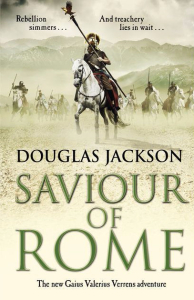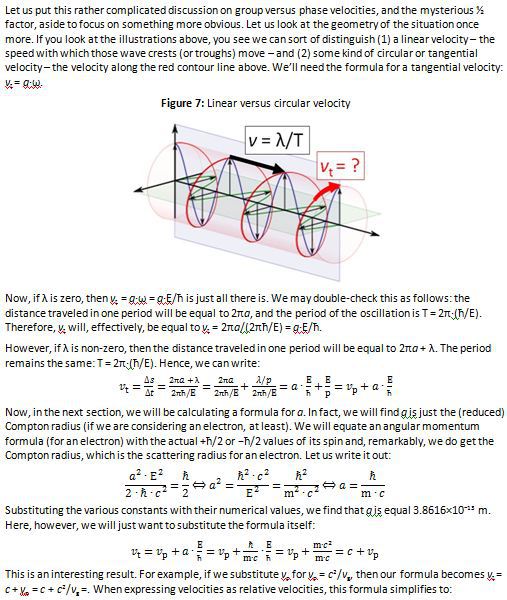 5 of 5 stars
5 of 5 stars
Series: Gaius Valerius Verrens 7
My version: Hardback
Historical Fiction Rome
Bantam Press
2016
Bought
AD 72. Titus Flavius Vespasianus, known as Vespasian, is Emperor of Rome.
However, his grip on power is weakening as economic disaster threatens the city and so the Empire itself. The imperial treasure chests are all but empty, legions go unpaid, while yields from the vital gold mines in Spain have fallen dramatically.
Gaius Valerius Verrens, recently married and building a new home, had hoped he’d left his old life behind when he received the summons from the Emperor. Vespasian wants his old friend to do him one last favour: to journey to the remote, mountainous region of Asturica Augusta and investigate claims that a bandit called ‘The Ghost’ is raiding the Empire’s gold convoys with impunity.
What Valerius finds in this tortured, gods-forsaken land is much more complicated. The native tribes, exploited for so long, are a growing threat, but it seems the real danger comes from those closer to him. Treachery waits in the shadows as he is drawn into a conspiracy that, were it to succeed, would plunge the Empire into a devastating new conflict.
It falls to Valerius to put an end to it – but first he must establish who is a friend and who is a foe…
Rome in turmoil. Who’d have thought, eh? Bad for the people at the time, but good for the Historical Fiction industry and readers of fine fiction everywhere.
Gaius Valerius Verrens has got himself – without actually trying, or more acurately, by just being Gaius Valerius Verrens – into Vespasian’s inner circle, or thereabouts. At least now the Emperor’s inner circle seems a rather less risky place to be than where he has often been under previous, more volatile, Roman Emperors (Douglas Jackson’s take on Vespasian chimes with the superb Robert Fabbri’s series about Vespasian and shows him (Vespasian) in a reasonably positive light. Less inclined to shag his sister in front of an audience, anyway). Valerius’ problem with Vespasian, is Vespasian’s son, Domitian. He is a decidedly nasty piece of work and doesn’t like our Valerius one little bit.
Fortunately for our nerves, Vespasian leaves Rome, reluctantly accepting a mission (though of course, this being the top of the three, Rome-wise, the perils of not accepting are not to be dwelt upon for too long), sending him off to the Iberian peninsula, shall we say. That’s Spain, to us in the here and now. He needs to find out why the Empire’s gold supply has dried up somewhat. Not a happy situation, if you’re the Emperor with mouths to feed, armies to placate and palms to grease. Then, just when you’re thinking, “where the hell is the boy Serpentius?!” (actually, if you read it, you’ll know, but play along with me)…you remember Serp had gone off last time out and he comes from Spain! So a meet up, of some sort is clearly on the cards. And, as the TV series once so aptly put it “when they met, it was murder!”
 Saviour of Roman Historical Fiction
Saviour of Roman Historical Fiction
If I’m figuring this right, Saviour of Rome is the first of the series not to have been written intertwined in the actual history. This one goes its own way and in a lot of ways, is about the relationship between Serpentius and Valerius. Serpentius has always been Valerius’ right-hand man, in more ways then one, always there and Valerius feels a little lost without him, both to the character and to us the reader. Nothing can last forever, all good things must come to an end, their lives moving on, so they have got to start to deal with separation. ‘Freeing’ the characters in this way, really can be seen. All the previous books before have been excellent books, this goes somewhere else in glorious style. A character piece maybe. A showcase of the storytelling ability of a writer I thought to already be at the peak of his Historical Fiction profession.
The undercurrent theme, is as always, based upon Valerius’ vision of what ‘Rome’ is. Think about it, after you’ve read it of course, for being called the ‘Saviour of Rome,’ Valerius is only actually in Rome five minutes! I’ve always thought he was more concerned with the concept of Rome, what that offered him and people after him, than the actual physical place itself. He clearly sees in Vespasian, an Emperor worth risking his neck for, an Emperor who will be good for his idea of Rome.
Effortlessly riveting entertainment, shot through with suspense, heroism, sadness, reflection. And…well, read it and try and believe your eyes. A wonder to behold. And there’s another ‘…of Rome’ along shortly. Finest kind!
You can buy Saviour of Rome from Booksplea.se
Related reviews on Speesh Reads:











